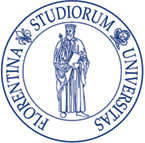| The covariogram problem for lattice convex sets
A set K is said to be lattice convex if K is the
intersection of the integer lattice with a convex set. With a finite,
lattice convex set K one can associate the so called covariogram
information, that is, the cardinaliy of K interesected with K+u, for
each integer vector u. The problem of determination of K by the
covariogram information of K (up to translations and reflections) was
raised independently by Gardner, Gronchi, Zong and Daurat, Gerard,
Nivat. In my talk I am going to report on partial results to this
problem, which were obtained in a joint work with Barbara Langfeld
(University of Kiel, Germany). On the one hand, in certain general
situations, K is determined by the covariogram information. On the
other hand, we were able to find an infinite family of examples for
which the determination is not unique.
|

